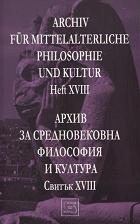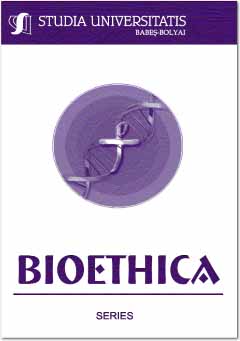
Thomas Aquinas On the Problem of Angelic Nature
Тома от Аквино върху проблема за ангелската природа
Keywords: angels; nature; individuation; medieval philosophy; Thomas Aquinas; Giorgio Pini; simple form
The present text is intended to be a critical answer to the upcoming article of Giorgio Pini The Individuation of Angels from Bonaventure to Duns Scotus, where he bases the interpretation of the angelic nature according to Thomas Aquinas on two main premises: first, that the angels are pure forms; and secondly, that only forms, which can be received in matter, can be numerically multiplied. By focusing on the principle of individuation of intelligible natures, we will try to show, that according to Thomas, the angels are not pure forms, although they are simple forms and species subsistentes. Then we will try to clarify, that his argumentation concerning the principle of individuation of angels is based mostly on the specific understanding of potentiality and actuality and on the view of order of being.
More...
